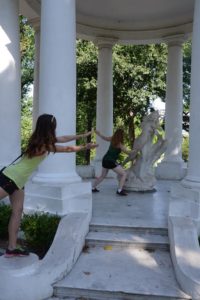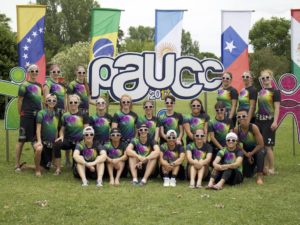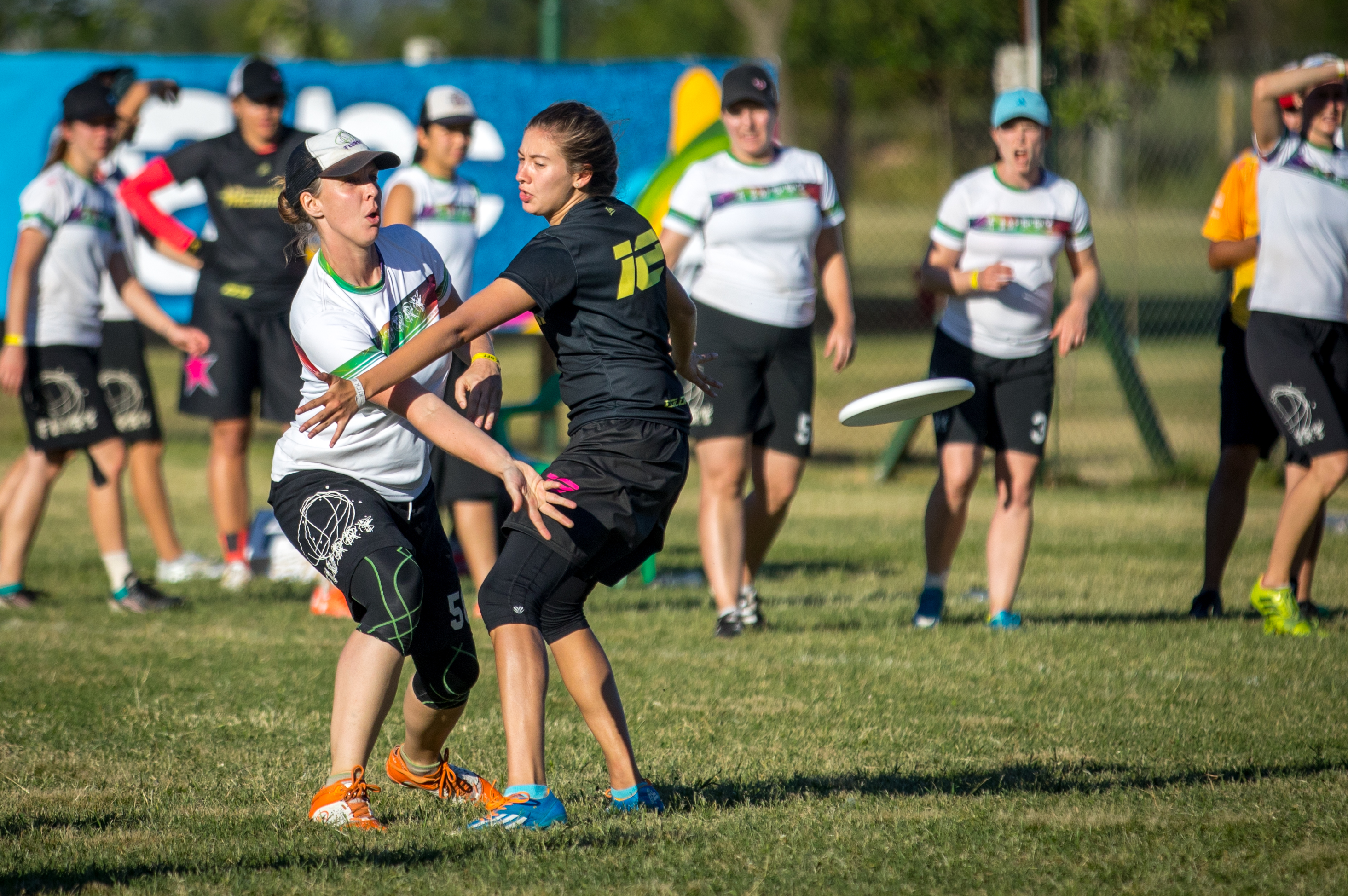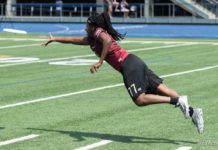Ultimate Canada Magazine – December 7, 2017
Written By: Kristie Smith
I first discovered Ultimate Frisbee when I was in grade ten. I came from a fairly competitive soccer background, but stubbornly did not want to give up co-ed sports when I entered high school. In grade nine I tried out co-ed volleyball, but discovered that it really wasn’t designed for the vertically challenged. The only other co-ed sport offered was Ultimate Frisbee, so I gave it a try and never looked back.
I’ve had a fifteen-year love affair with the sport, though it has frequently had to take a backseat to my education and career. I’ve played several competitive seasons in that time and been to CUC three times, but the Pan-American Ultimate Club Championships (PAUCC) was my first tournament outside of North America.
As my departure date for PAUCC neared, I felt a huge mix of excitement and trepidation. It had been several years since I had travelled outside of North America, we had some very tight connecting flights, and I speak almost no Spanish. Fortunately, I was travelling with a teammate which made navigating through five airports, three flights and two sets of customs a breeze. She also spoke enough Spanish to make our travels in Argentina relatively hassle free. All that was required from me was to remember the occasional key word and learn the phrase “lo mismo” (the same) when ordering food after her.

We arrived Argentina a full week ahead of the tournament and spent two days at the amazing Iguazu Falls National Park, which is an absolute must see if you are ever in Argentina, and five days in Buenos Aires seeing the famous Recoleta Cemetery, the many palaces and mansions, the botanical and Japanese gardens, and visiting museums. The fun in arriving early was being progressively joined by more and more teammates in the city.
Being my first tournament abroad, I wasn’t quite sure what to expect. Which I suspect was a common theme among the team. Travelling in a foreign country always has its share of surprises. Throw in a tournament and we definitely discovered some unexpected bumps in the road.
The team had some initial struggles with our accommodations and transportation, which we sorted out creatively. However, food was where we encountered the majority of our surprises. For starters, we hadn’t been planning on eating dinner after 9PM every night! The parilla (barbequed meat) was delicious, though after the first couple of days many of us might have been tempted to sell our cleats for a vegetable to go with it. Water, pop and beer were all the same price (a fact that was beneficial for some ultimate players) and red wine was served with ice. At breakfast we discovered that there was no milk for our cereal, but there was drinkable strawberry yogurt. And much to everyone’s horror, we were unable to find the ultimate player’s staple food—peanut butter—though I did enjoy discovering how many ways I could possibly find to use dolce de leche instead.
We didn’t just experience differences in the culture and day-to-day living, but also on the field. Many members of our team had never played a South American team and we found ourselves making adjustments on the fly.
We are used to teams using the full width of the field to swing the disc between handlers, but this did not seem to be a common strategy among South American teams. Most teams preferentially looked up field and would throw into tight coverage when least expected (and often very successfully). They tended to play a very tight person coverage and had the speed and drive to challenge for discs that we might not typically consider to be “open.” We eventually came to expect the unexpected.
We were amazed by the amount of positivity shown by the teams at PAUCC and, despite sometimes having major language barriers, we had civil and productive calls and resolutions. Through this process, we learned some really valuable tools that we hope to bring back to Canada and see incorporated into our play here.
At the beginning of the tournament we were given a handout from the World Flying Disc Federation (WFDF) with a variety of hand signals to be used for making and resolving calls. There were signals for foul, pick, travel, contest and no contest and so on. These made it immediately evident what the call was despite language barriers or heavy winds drowning out our words.
The Brazilian team introduced us to the practice of taking a knee on both the field and sideline during a call discussion if we had nothing to contribute or didn’t see the play. This was fantastic for keeping the discussion just to the relevant parties, and we immediately tried to implement the practice in our following games. Being a self regulated sport at most levels of play, anything that helps us to communicate more effectively and efficiently with each other is of huge benefit.
Despite my insistence on playing a co-ed sport in high school, most of my competitive ultimate career has been in the women’s division. At PAUCC we had the honour to meet and play against some newer teams and to see women in ultimate standing up and saying; ‘here we are!’, in other parts of the world.

Several of the teams we met identified themselves as the only women’s team in their entire country, and many of the ladies on our team felt a certain sense of comradery with these other women, being from a province where the sport is still emerging onto the main stage. Relative to places like BC, Ontario and Quebec which have the population and the tournament opportunities to support a number of high profile women’s teams, in Albertan cities it can still be a struggle to field enough women for all 3 divisions: women’s, mixed, and masters. Hopefully opportunities like the one we had at PAUCC will help to raise awareness and bring more young women into our sport here in Alberta and around the world.
PAUCC 2017 was arguably one of my most memorable experiences playing ultimate to date. I will forever remember it with a special fondness because it was my first international competition. Flurry ended up finishing in fifth place and although we went into the tournament hoping to medal, I am really proud of our performance.
We brought together a truly Canadian team with members from across the country and had to learn to communicate and trust each other very quickly. Everyone was supportive of one another and of the team, everyone gave it everything they had, and everyone played with the true spirit of the game. And we got to do it in beautiful Argentina. It really doesn’t get much better than that.

![International Women’s Day 2019 [Presented by VC Ultimate]](/c/wp-content/uploads/2019/03/unnamed-218x150.jpg)





